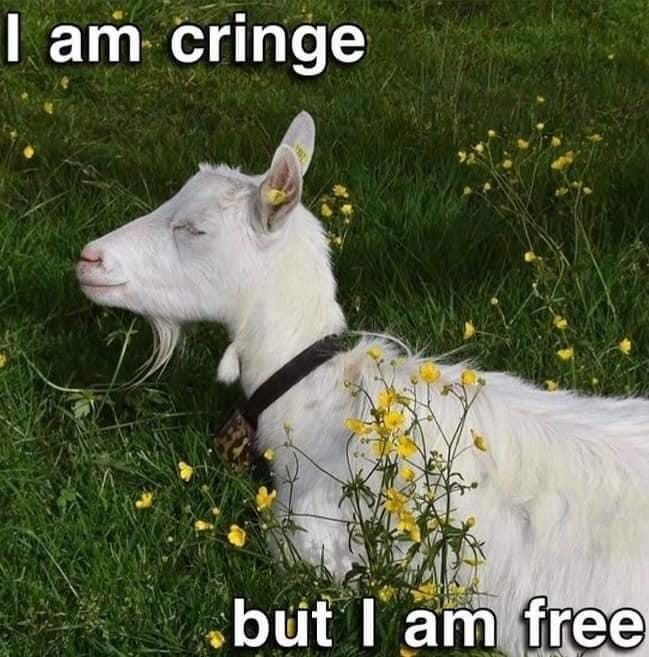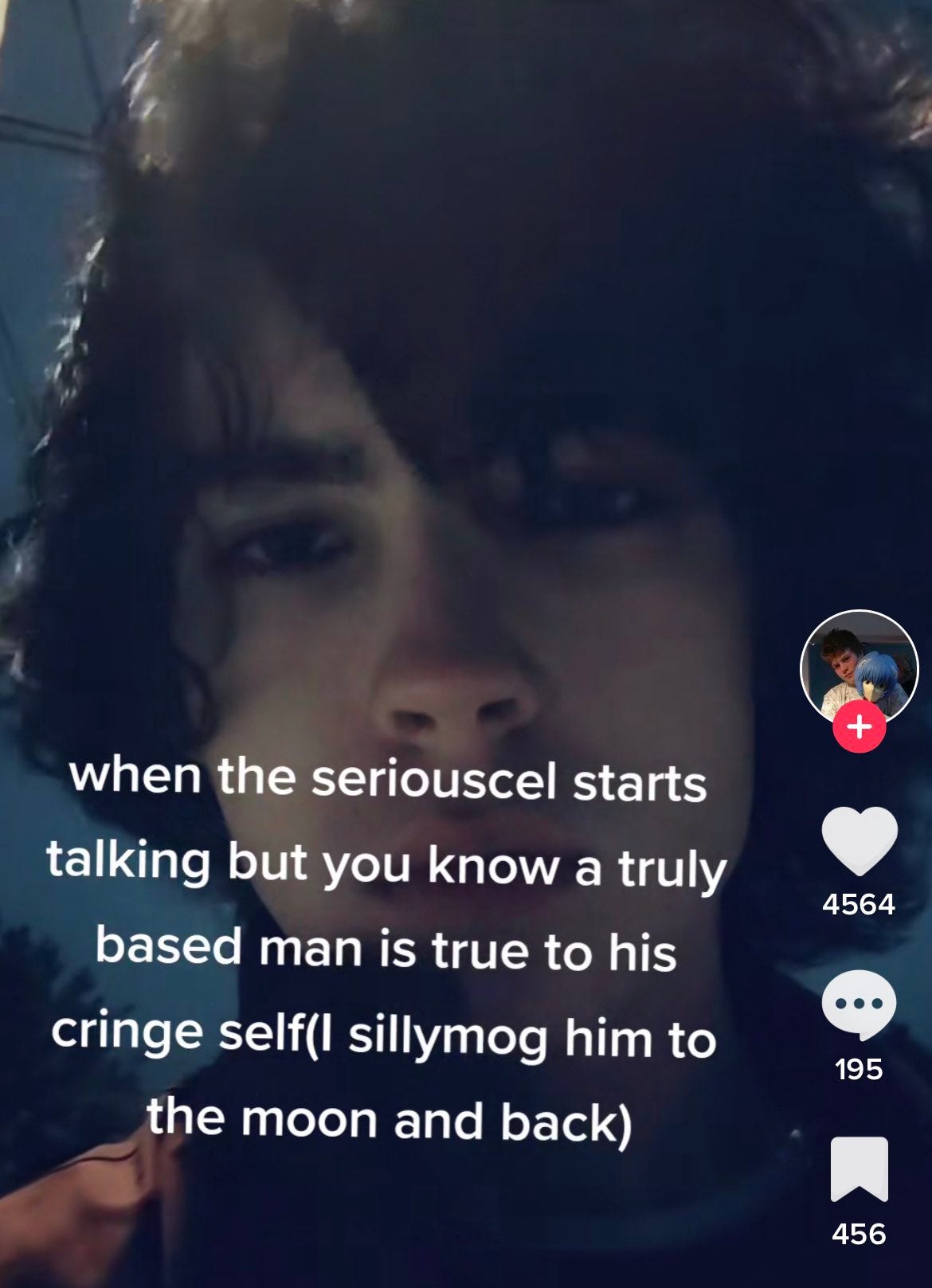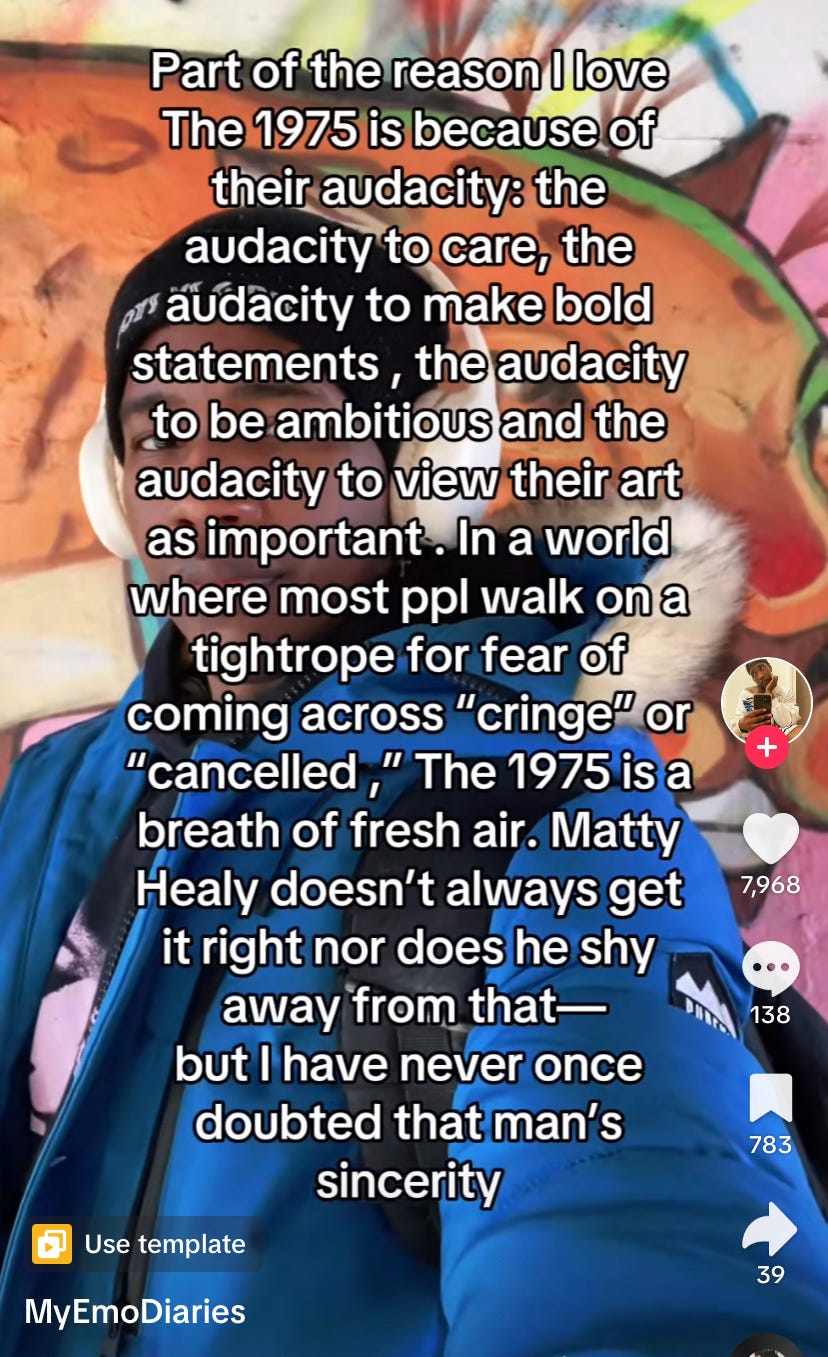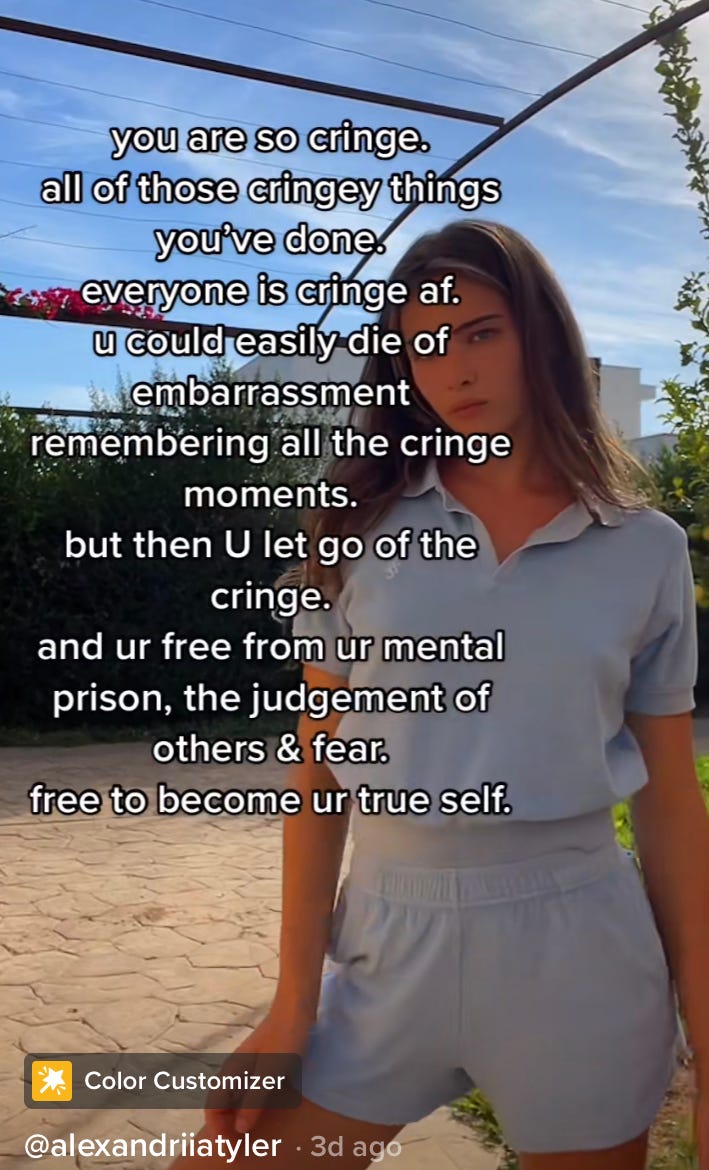Cringe as an Adjective
“i’m too cowardly to take a stand i wanna keep my nose clean” - andrew jackson jihad
Cringe is traditionally a verb. Its early etymology is the Old English “cringan”, which was a battle word meaning “to fall, yield, or submit”. In Middle English, it shifted to “crengen/cringen”, which meant to bend or crouch in submission. By early Modern English, it reached its modern form of physically recoiling in discomfort. The Oxford English Dictionary’s current first example sentence to define “cringe” is “he cringed away from the blow.” Its definition expanded as time passed to include metaphorical types of recoiling, like the Oxford English Dictionary’s second example sentence, “I cringed at his stupidity.”
Now that the battles are fought online and in English, cringe as a word became a powerful weapon in the online culture war. Cringe was already on a meteoric linguistic rise to end the 20th century. Starting in around 1980, it shot up to be used around 5x more often in books in Google Books’s archive. I don’t think there’s a short way with current technologies to see which definition was being used more often, but my intuition is it was more often used as metaphorical recoiling from something ugly.
Source: Google Books Ngram Viewer
With the advent of the internet, “cringe” became even more common in conversational English. Google Trends tracks the usage of “cringe” in Google searches across the English language, and there’s a clear growth starting in the mid-2010s.
Source: Google Trends 2004 - Present
The subreddit r/Cringe was created on September 10th, 2011, and r/CringePics on October 14, 2012. These were communities dedicated to posting content that merits you recoiling in embarrassment. r/Cringe is pretty dead now, but r/CringePics is active, and even more active is r/TikTokCringe and r/SadCringe and other splinter communities, dedicated to posting specific genres of content that people find it pleasant to cringe at.
Reddit isn’t the only community that uses “cringe”, of course. I think you’d need a PhD research project to confirm this, but my intuition is that like many other linguistic threads the internet surge of “cringe” came from 4chan and then saturated out to other communities. Today it’s a common word on YouTube, Twitter/X, TikTok, Discord, Instagram, and even Facebook. I think you’d be pressed to find a community online where “cringe” isn’t a part of the lexicon.
But, unlike its traditional role as a verb, cringe is not being used as a verb in most of these internet spaces. More often it’s used as an adjective. “This post is so cringe.” “I’m putting this in my cringe compilation.” Sometimes people try to correct it from a grammatical perspective with the adjective form “cringeworthy”, but I personally don’t care about the grammar rules. Grammar is a system for clarity of language, and if people are being internally clear to each other it’s fine.
What I’m interested in is the effects of the language. Language is viral. People hear one person say a new word, or recontextualize an old word in a new way, and they realize that the language is powerful. So they start using it too. But that process isn’t random. Why did it catch on to use cringe as an adjective?
The answer, in my opinion, is actually pretty simple. An adjective has no owner, while “cringe” as a verb requires attribution to a single person. Saying “this post is cringe” instead of “I cringed at this post” attributes the embarassment to a universal owner, instead of only to the speaker. Cringe as an intractable descriptor is more powerful than cringe only coming from only one perspective.
This makes “cringe” as an adjective an especially powerful tool in internet spaces, where people are often writing anonymously about the things they find embarrassing to criticize them. It’s syntactically weaker to say “I cringed at this dumb thing a journalist said” when no one knows or cares who you are, but shifting it to a adjective makes it a criticism and a provocation, and a rallying cry other posters can join. That’s a very memetically powerful set of traits for a word, other people can see the strength of the syntax, so “cringe” grew as an adjective really quickly. Cringe was already rising in use in English as a way to describe a certain type of social discomfort, and the internet accelerated it to its strongest form, by removing the source of the discomfort, and saying this should make everyone uncomfortable.
I’m generally positive on internet language. I think the internet is a place where language develops. It’s often fun to play with fresh internet words because they’re new and still sound silly. People laugh at words, and then the words win and they start using them in sentences.
But my take on cringe is that its original form as a verb is a lot more honest. Cringe as an adjective is an unearned universality. Is the thing you’re calling “cringe” really embarrassing to everyone in the world? So many things that people declare “cringe” are very normal. I think cringe is meaner in its form as an adjective, or at least meaner in a weak way. Firing off an insult without owning that it’s coming from you. I don’t think it’s worth writing a lot of words about being nice, being nice has to come from you, but anyways, cringe is a mean word to launch at someone.
Cringe as an adjective is unearned linguistic firepower. But the thing about unearned linguistic firepower is when it’s deployed too often it loses the power. Language is self-correcting. And I think the self-correction is already happening for “cringe”. People who can’t string together a full sentence calling something cringe with no further followup kills the seriousness of “cringe” as a criticism, it becomes just another hyperbole word that doesn’t mean much except when targeted extremely well. The coolness factor of the people who use “cringe” as a sincere critical descriptor has been going down, decaying into language used by fifteen year old boys and angry fifty year old Facebook commenters. I guess it started with fifteen year old boys, but it was the more incisive fifteen year old boys.
More often than cringe as an insult now, at least in the content that I consume, there’s an embrace of the adjective cringe, like this Tumblr post that says “I’m cringe but I am free”. It’s a common sentiment to embrace the fact that other people might find you embarrassing, but being yourself anyways.
When I searched my TikTok archive for the word “cringe”, every screenshot I found had this same sentiment.
I think that’s very noble, but I think it’s also okay to reject the terms of the classification.
This piece is not serious etymological research, or moral/karmic advice. It is a writing style guide.











